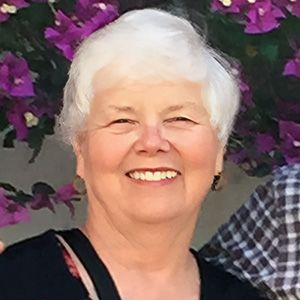Sacred Journeys: Psychedelics and the Search for Meaning
Spirituality and Psychedelics
I spent several decades of my adult life as a practicing Marriage & Family Therapist. In all those years, I encountered a handful of people whose depressive symptoms had such a hold on them, they were immobilized. It seemed that no treatments were available to help them enjoy life again.
Today, the medical use of psychedelics is adding a powerful option. Much research is being done in this field, with quite astounding results. There are a growing number of places in Indianapolis where people suffering from depression can take psychedelics in the presence of trained therapeutic practitioners.
Now, research is expanding into the field of spirituality and psychedelics. The best-known study is a 2016 collaboration between Johns Hopkins and NYU Schools of Medicine, involving 22 religious leaders—Episcopalian, Presbyterian, Methodist, Lutheran, United Church of Christ, Congregational, Baptist, Eastern Orthodox, Pentecostal, Reformed Church in America, Roman Catholic, Unitarian Universalist, Orthodox Jew, Reconstructionist Jew, Renewal Jew, Sunni Muslim, and Zen Buddhist.
The results, which were delayed for almost a decade, are now available. They reveal that 96% of the participants retroactively rated their psilocybin experience among the top five most spiritually significant, profoundly sacred, psychologically insightful, and meaningful experiences of their lives.
Some came to see all religions as part of one truth, while many felt more grounded in their personal traditions. Some attributed their psychedelic experiences entirely to God, while others credited chemical changes in their brains. They reported positive changes in their effectiveness as religious leaders, as well as in their non-religious attitudes, moods, and behaviors.
Are we on the cusp of a dramatic change in the acceptance of psychedelics beyond medical uses?
The American Indian Religious Freedom Act of 1978 safeguards the use, possession, and transportation of peyote by Indigenous people for bona fide traditional ceremonial purposes. Now, a non-Indigenous group in Utah has sued—and won—their case.
On August 4, 2025, District Judge Jill Parrish of the U.S. District Court of Utah ruled in favor of a religious group called Singularism, which had sued for the right to use psychedelic mushrooms in their worship services as a conduit to profound spiritual experiences. Judge Parrish sided with the group.
Just two days later, on August 6, 2025, Rabbi Jay Michaelson spoke at a Spirit and Place event in Indianapolis. Rabbi Michaelson is a field scholar at the Emory Center for Psychedelics and Spirituality and a fellow at Harvard Law School’s Project on Psychedelic Use, Law, and Spiritual Experience (PULSE).
In March 2025, he co-organized the first-ever conference on the legal recognition of religious psychedelic use in Christian, Jewish, and Muslim communities. His colleague, Gary Laderman—a religion scholar at Emory University—has a book titled Sacred Drugs: How Psychoactive Substances Mix with Religious Life, coming out in September 2025. These two men are leaders in this emerging field of spirituality and psychedelics.
I have lots of questions. Maybe you do too.
Are we approaching a time when psychedelics will be welcomed into the spiritual practices of American faith traditions? If so, how long until that door opens?
Would I be willing to take part in a religious ceremony using psychedelics? Would you?
How would such an experience transform my spiritual life?
Could clergy take part in a psychedelic experience as part of their seminary training?
Do seminaries need to train religious leaders to provide care and guidance to those in their congregations who want to process their psychedelic experiences?
A whole new opportunity for spiritual growth is opening before us. Are we ready?












